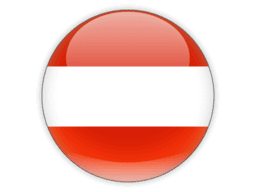
Regions of Austria
Explore 9 regions
Cities of Austria
Discover 50 cities across 8 regions
Carinthia(4)
Lower Austria(4)
Styria(7)
Austria is a landlocked country located in central Europe, bordered by Germany to the northwest, the Czech Republic to the north, Slovakia to the northeast, Hungary to the east, Slovenia and Italy to the south, and Switzerland and Liechtenstein to the west. The capital city is Vienna, and German is the official language.
Austria has a population of around 9 million people, and the majority of the population is ethnically Austrian, with small minorities of Turks, Serbs, and others. The country has a varied landscape, with the eastern part of the country being mostly flat, while the western and southern parts are mountainous.
Austria has a developed economy, with a mix of industries including tourism, manufacturing, and services. The country is known for its production of goods such as machinery, iron, steel, and chemicals, as well as its exports of wine and chocolate. Austria also has a strong service sector, particularly in the areas of tourism and finance.
Austria is a federal parliamentary republic with a President serving as the head of state and a Chancellor serving as the head of government. The country is a member of the European Union, the United Nations, and the Organisation for Economic Co-operation and Development (OECD), among other international organizations.
Austria has a rich cultural heritage, influenced by its history as a center of the Habsburg Empire and its location at the crossroads of Europe. The country has a variety of festivals and celebrations throughout the year, including the Vienna Opera Ball in February and the Salzburg Festival in July and August.
Austria is known for its stunning architecture, including the historic center of Vienna, which is a UNESCO World Heritage Site. The country is also renowned for its music, with many famous composers such as Mozart, Haydn, and Strauss hailing from Austria.
Despite its many strengths, Austria faces challenges such as immigration and integration of refugees, as well as concerns about environmental sustainability. The country has taken steps to address these issues, including increasing funding for integration programs and implementing policies to reduce carbon emissions.
National holiday
National Day (commemorates passage of the law on permanent neutrality), 26 October (1955)
Telephone Code
43
Local Emergency Phone
112, 122
Vaccinations
See WHO recommendations
Climate
Temperate; continental, cloudy; cold winters with frequent rain and some snow in lowlands and snow in mountains; moderate summers with occasional showers
Currency (Code)
Euro (EUR)
Electricity/Voltage/Plug Type(s)
230 V / 50 Hz / plug types(s): C, F
Major Languages
German, Turkish, Serbian, Croatian
Major Religions
Catholic 57%, Eastern Orthodox 8.7%, Muslim 7.9%, Evangelical Christian 3.3%
Potable Water
Yes
International Driving Permit
Suggested
Road Driving Side
Right
Tourist Destinations
Vienna Hofburg; Salzburg Altstadt; Innsbruck's Hofburg and Hofkirche; Melk Benedictine Abbey; Austrian National Library; Karlskirche (St. Charles Borromeo Church); UN Office in Vienna; Shoenbrunn Palace; Salzkammergut (includes Hallstatt and Dachstein); Skiing at Kitzbuehel and Kitzbueheler Horn; prehistoric pile dwellings around the Alps
Major Sports
Soccer, alpine skiing, ice hockey
Cultural Practices
While some Austrian men will kiss the hand of a female as a greeting, it would be improper for a foreigner to kiss the hands of Austrian females.
Tipping Guidelines
It is customary to round up and leave the change at restaurants for the server. Taxi drivers usually receive an extra 10% over the meter fare. Porters or bellhops should receive up to 1 euro per bag.
Souvenirs
Handbags, crystal, porcelain, winter sports equipment, bronze and Hummel figurines, carved Nativity scenes featuring Alpine villages
Traditional Cuisine
Wiener Schnitzel — pounded veal cutlets breaded and lightly fried in butter; typically garnished with parsley and lemon slices and served with potato salad
Country code top-level domain
.at
Geography
Area
total: 83,871 sq km
land: 82,445 sq km
water: 1,426 sq km
Climate
temperate; continental, cloudy; cold winters with frequent rain and some snow in lowlands and snow in mountains; moderate summers with occasional showers
Natural resources
oil, coal, lignite, timber, iron ore, copper, zinc, antimony, magnesite, tungsten, graphite, salt, hydropower
People and Society
Population
8,940,860 (2023 est.)
Ethnic groups
Austrian 80.8%, German 2.6%, Bosnian and Herzegovinian 1.9%, Turkish 1.8%, Serbian 1.6%, Romanian 1.3%, other 10% (2018 est.)
Languages
German (official nationwide) 88.6%, Turkish 2.3%, Serbian 2.2%, Croatian (official in Burgenland) 1.6%, other (includes Slovene, official in southern Carinthia, and Hungarian, official in Burgenland) 5.3% (2001 est.)
Religions
Roman Catholic 55.2%, Muslim 8.3%, Orthodox 4.9%, Evangelical Christian 3.8%, Jewish 0.1%, other 5.4%, none 22.4% (2021 est.)
Population growth rate
0.31% (2023 est.)
Government
Government type
federal parliamentary republic
Capital
name: Vienna
Economy
Economic overview
one of the strongest EU and euro economies; diversified trade portfolios and relations; enormous trade economy; Russian energy dependence, but investing in alternative energy; aging labor force but large refugee population; large government debt
Real GDP (purchasing power parity)
$484.698 billion (2021 est.)
Real GDP per capita
$54,100 (2021 est.)
Agricultural products
milk, maize, sugar beet, wheat, barley, potatoes, pork, triticale, grapes, apples
Industries
construction, machinery, vehicles and parts, food, metals, chemicals, lumber and paper, electronics, tourism
Exports
$268.277 billion (2021 est.)
Exports - partners
Germany 28%, United States 7%, Italy 6%, Switzerland 5% (2019)
Exports - commodities
cars, packaged medical supplies, vehicle parts, medical vaccines/cultures, flavored water (2019)
Imports
$265.769 billion (2021 est.)
Imports - partners
Germany 39%, Italy 7%, Czechia 5% (2019)
Imports - commodities
cars, vehicle parts, broadcasting equipment, refined petroleum, packaged medical supplies (2019)
International Airports in Austria
Discover 6 major airports serving Austria
Mark Austria as Visited
Add Austria to your personal travel map and track your journey around the world. Share your adventures and see your progress grow!